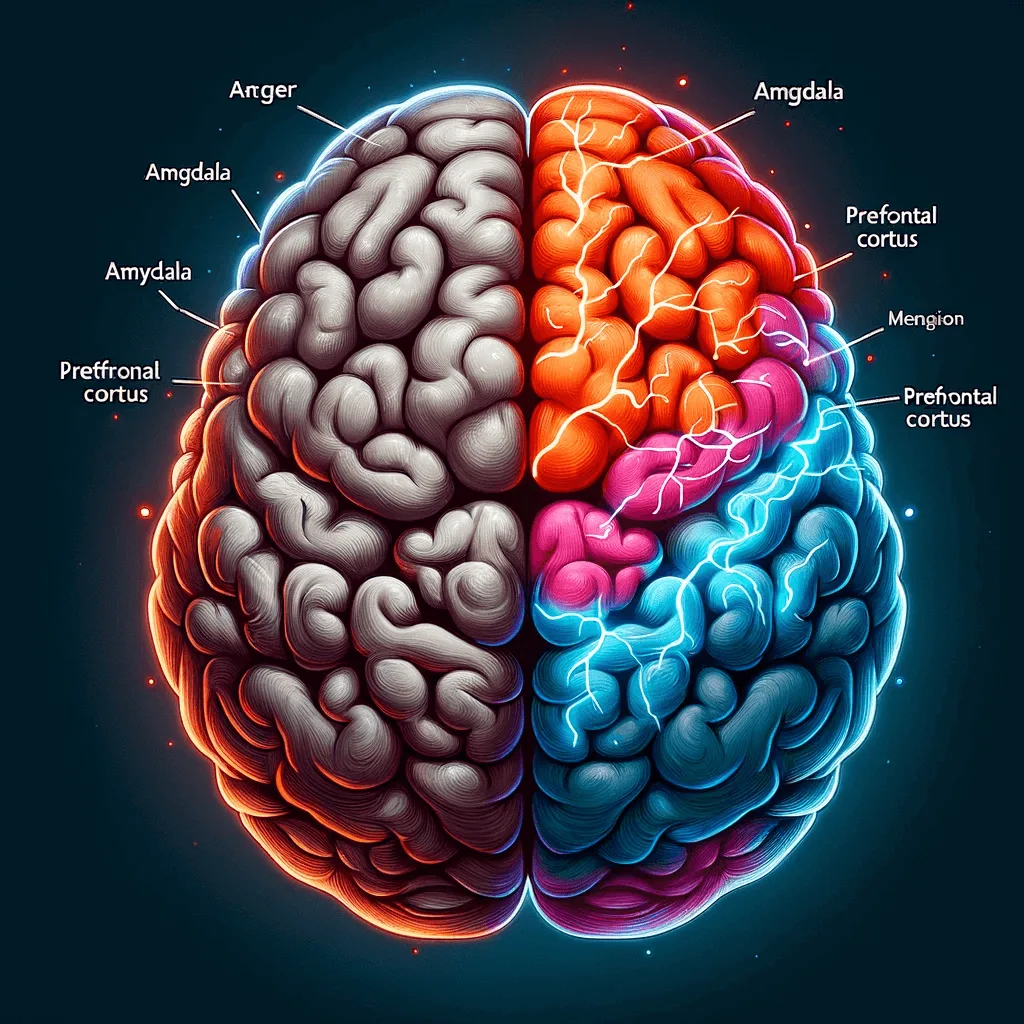
Harnessing Inner Calm: Meditation & Anger
Anger, a primal human emotion, has played a significant evolutionary role, aiding in survival and response to threats. However, in modern society, uncontrolled anger can have detrimental effects, both personally and socially. With the rising interest in holistic well-being, meditation emerges as a potential tool to modulate and manage anger.
article by Hina Kurosawa
Anger: A Neurobiological Perspective
To comprehend meditation's effect on anger, it's pivotal to understand anger's neurobiology. Anger activates the amygdala, a region in the brain associated with emotion, while simultaneously reducing activity in the prefrontal cortex, responsible for reasoning and judgment. This combination can lead to impulsive reactions without thorough logical processing.
Meditation & Brain Plasticity
Meditation is not just a mental exercise; it induces tangible changes in brain structure and function. Neuroimaging studies have shown that regular meditators have increased cortical thickness in the prefrontal cortex. This enhancement in the very area suppressed during anger suggests that meditation can enhance logical thinking and emotional regulation.

Reducing Stress Hormone Production
Chronic anger is often linked to elevated levels of the stress hormone cortisol. High cortisol levels, in turn, can make individuals more susceptible to anger and aggression. Meditation, especially mindfulness meditation, has been shown to reduce cortisol production, thereby lowering the baseline stress levels and, by extension, potential anger responses.
Emotional Awareness & Regulation
A study published in the journal "Emotion" highlighted that individuals practicing meditation regularly exhibited heightened emotional awareness. By recognizing emotional triggers early on, meditators can employ techniques to prevent anger escalation, leading to more balanced emotional responses.

Enhanced Empathy & Perspective-Taking
Another dimension through which meditation influences anger is by bolstering empathy. Research from the University of California, Davis indicates that consistent meditation practice enhances an individual's ability to understand others' emotions and perspectives. This increased empathy can reduce interpersonal conflicts, a frequent source of anger.

Anger Management Programs Given the compelling evidence, meditation is increasingly being incorporated into anger management programs. Clinical trials have demonstrated that meditation-based interventions can significantly reduce anger outbursts, improve interpersonal relationships, and enhance overall emotional well-being.
While anger is a natural human emotion, its unchecked manifestations can be destructive. Meditation, backed by a growing body of scientific evidence, offers a promising pathway to harness inner calm, regulate emotional responses, and transform anger from a volatile force into a manageable feeling. As science continues to uncover the depths of this relationship, meditation stands out as a beacon of hope for those seeking emotional balance.
Published: 10/25/2023
Modified: 10/25/2023
More predictions
Come back here soon to learn more about yourself and your future





